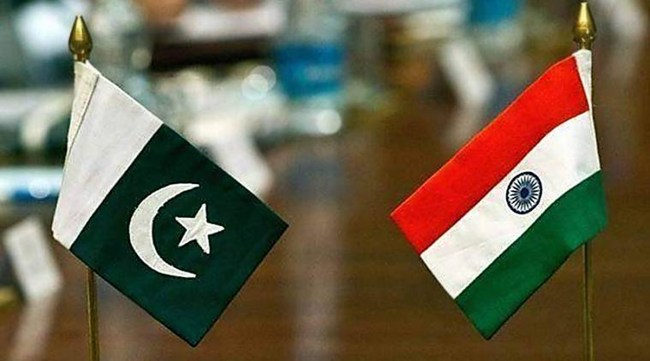Opinion View from the neighbourhood | Indo-Pak treaty tension and the disqualification of a CM: What the Pakistani media is talking about
A weekly wrap-up of the issues being discussed and debated in India’s neighbourhood
 In 2016, Pakistan had begun legal proceedings against India for the very same matter and India had then objected to getting the PCA involved saying that “the court had no jurisdiction in the said dispute”. (File)
In 2016, Pakistan had begun legal proceedings against India for the very same matter and India had then objected to getting the PCA involved saying that “the court had no jurisdiction in the said dispute”. (File) Indus Waters Treaty dispute
On July 6, the Permanent Court of Arbitration (PCA) ruled that “it is a competent forum to mediate dispute over Kishanganga, Ratle projects” (Express Tribune, July 8) being constructed on the Jhelum and Chenab rivers respectively that “jeopardise the free flow of the western rivers to Pakistan, as guaranteed by the IWT (Indus Water Treaty)” (Dawn, July 9). In 2016, Pakistan had begun legal proceedings against India for the very same matter and India had then objected to getting the PCA involved saying that “the court had no jurisdiction in the said dispute” (Dawn, July 9). The court ruling in favour of Pakistan’s stance is a “significant win” (The Nation, July 7) for the country.
Dawn (July 9) comments on the matter saying, “The Indian government must not politicise the water issue… For Pakistan, protecting its water rights is non-negotiable”. The Nation (July 7) says, “It is vital to recognise the importance of this decision and stress the need to maintain the Indus Water Treaty for regional stability.” Express Tribune (July 8) adds, “the UN has categorically stated that both Pakistan and India are facing acute water crisis. This scarcity is rapidly evolving into a security issue… the need of the hour is that stakeholders across the divide take a holistic view of exigencies at hand”.
The Jenin Attack
On July 3, Israel launched a two-day attack on Jenin, the occupied refugee camp city of West Bank, killing 12 Palestinians (including children) and one Israeli soldier. This was said to be the deadliest attack on Jenin in about two decades, comparable to the 2002 raid by Israel Defence Forces (IDF).
The Pakistani media collectively condemned this attack and urged the international community to do the same, and take action against the aggressor.
News International (July 5) says, “The international media sees the attacks and the retaliatory firing/attacks by Palestinians as an exchange of fire between two equally strong groups — and fails to highlight the many factors that have left Palestinians on their own, compelling some of them to take up arms in defence”. Daily Times (July 7) says, “It is essential to hold Israel accountable for its inhuman actions and demand an end to the systematic destruction and violation of human rights.” More so, “It is time for the international community and champions of human rights to move beyond mere lip service and act decisively for a tangible and lasting resolution.”
Monsoon woes
This monsoon season saw flooding in Lahore leading to a loss of 26 lives as well as hundreds of cases of gastroenteritis in Karachi, arising from contaminated drinking water.
Dawn and Express Tribune commented on the need for better infrastructure to prevent urban flooding. News International spoke to the need for clean drinking water for all residents. Dawn (July 7) says, “Each city requires a master plan to augment the water-carrying capacity of its sewerage and storm water drainage systems… cities need vibrant and financially and administratively autonomous elected local governments for better urban management and planning.” Tribune (July 7) says, “it is crucial for governments to develop long-term strategies to mitigate the risks associated with urban flooding… [they] can re-design urban areas that are resilient to flooding, including implementing green infrastructure which can absorb excess water.” News International (July 7) says, “Providing clean and healthy water to households through properly built pipelines is the government’s job. But over the years Karachi has seen this having been outsourced to private water companies and the infamous tanker mafia… Lack of regulations… means that there are neighbourhoods where companies are selling water that is unfit for human consumption.”
Gilgit-Baltistan CM disqualified
Gilgit-Baltistan Chief Minister Khalid Khurshid Khan (PTI) has been disqualified from his post since he obtained a licence from the bar council on the basis of a fake degree from the University of London. The media narrative revolves around the negligence in verification from both the Election Commission as well the local bar council and the political fallout from a PTI representative being removed from office, who “reportedly had a clear majority in GB and was expected to win elections” (The Nation, July 6).
Express Tribune (July 6) says this raises “several questions about the quality of vetting done by the ECP and the local bar council, since Khurshid Khan had been serving as chief minister for well over two years before anyone actually looked at his credentials.” The Nation comments on the political aspect saying, “this disqualification seems to be a byproduct of rising political tensions in the face of the upcoming elections… [it] will create some complications that might not honour the people’s will, nor would it benefit the region”. Moreover, “The future of the region has been put into question”.
adya.goyal@expressindia.com



